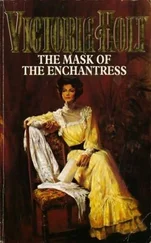I knew the doctor was aware of this and it made him very happy. He now made a habit of coming in to listen to lessons and took far more interest in them than he had when Miss Harley was in control.
On one occasion, when I was in the garden. Miss Carson was there too and we sat together and talked. Miss Carson always seemed so interested in other people that it was easy to talk to her. I was able to explain how I had never felt like a member of the family except when Uncle Toby was there and the reason why was that I did not really belong. I explained how Tom Yardley had found me under the azalea bush.
“You see,” I said, ‘my mother didn’t want me, so she left me there.
Most mothers love their babies. “
“I am sure your mother loved you,” she said.
“I think she probably left you there because she loved you so much and wanted you to have a better life than she could give you. In Commonwood House, there would be people to look after you, to feed you well, to care for you. And there was a doctor in the house too.”
I was surprised that my mother should have left me because she loved me. It was an idea which hadn’t occurred to me before.
“But I always felt they didn’t really want me,” I explained.
“Nanny thought I should have been sent to an orphanage or the workhouse. They might have sent me there, but for the doctor.”
“The doctor is a very good and understanding man.”
“Nanny thought I should go.”
“But the doctor kept you, so it is not important what Nanny thinks.
The point is that he wanted you to stay. “
“Sally told me all about it. She remembers it well. She had just come at that time. She said she was afraid they would send me away, for the doctor didn’t have much say in what was to be done. Mrs. Marline didn’t want me either, and she is the one who counts.”
“Well, the doctor had his way. He wanted you and that was what mattered. Your mother made a great sacrifice because she wanted the best for you, and you must not feel inferior in any way. You are going to show them all that you may have been found under that azalea bush, but you can do as well as any of them.”
“I will, I will,” I said. And I felt as I did when Uncle Toby was there.
And, like Adeline, I loved her.
Nanny did not like the governess, of course. She was prejudiced against her from the start. She did not like governesses in households interfering with the children, and she was not going to change her mind. They gave themselves airs; they had too high an opinion of them selves; they thought themselves ‘a cut above’ the servants. So even the gentle-mannered Miss Carson could do nothing right for her.
And, of course, Mrs. Barton was her staunch ally in this. Governesses were a nuisance. They had to have meals sent up to their rooms.
Couldn’t eat with the servants, and, of course, they were not acceptable in the family. In any case, what was the family now, with Her in her room, demanding this and that, and Him sitting there alone and not a man to take much notice of what was put before him, in any case. It was a funny set-up, if you asked Mrs. Barton and not helped by having a governess in the house.
Then there was always the overpowering presence of Mrs. Marline. The constant clanging of bells and the maids run off their feet.
“Grumble, grumble,” said Mrs. Barton.
“Morning, noon and night.”
“She’d find fault with the Angel Gabriel himself,” declared Nanny.
We used to hear the rumble of Mrs. Marline’s voice behind the closed doors when the doctor was with her. She was, of course, complaining.
On and on it went, and then there would be a brief pause. We knew then that the doctor was trying to placate her, speaking in his soft, gentle voice.
“Poor man,” said Sally.
“Worn out, that’s what he is. Nag, nag, nag, and between you and me and the gate post, he’d be better off without her. She’s going to be an invalid all her life … and her going on like that, well, he’ll be the first in the grave, if you ask me. And don’t you dare mention what I’ve said.”
I was sorry for the doctor. He was so gentle, and he looked very tired when he emerged from that room. He stayed in his own as much as he could, I was sure; and he seemed eager to get off to his surgery, and he stayed there longer than he did before, which I guessed was because he hated coming home to Mrs. Marline. As soon as he did come in, she would call out for him; and then the rumbling of the voices would begin.
Annie Logan continued to come in the mornings and evenings, and she always stayed for a chat and tea; then there would be a lot of whispering in the kitchen with Nanny and Mrs. Barton. I tried to listen when I could, and it all seemed to be about Her and Him.
I felt or perhaps I imagined I did afterwards that there was an uneasy tension in the house. Sometimes when Mrs. Marline had taken her pills because the pain was worse than usual, a stillness would descend on the house as though it were waiting for something to happen.
Then it would change again, and we would hear the wheelchair going from one room to another, or Tom Yardley or the doctor wheeling it into the garden. We would all avoid going there when the chair was there.
It was easy for me, because she had always ignored me. Not so for Estella, Henry and Adeline. She found continual fault with them, and particularly Adeline. She could not hide her contempt for the poor girl. She could not forget that she had borne a child who was not normal and, I imagined, she had always seen herself as a woman who achieved perfection in all she did.
Poor Adeline would invariably resort to tears as soon as she escaped from those sessions with her mother, for she dared not let her mother see them. It was pathetic to realize how she had to hold back her misery. But Miss Carson was always there when she emerged from that dreaded room. She knew exactly how to comfort her; and soon Adeline would forget her mother and accept Miss Carson’s assurances that all was well because she had her dear Miss Carson, who said she was quite clever after all.
In the summer, the gipsies came to the woods again.
One morning I awoke to find them there. They often came late at night and settled in the woods.
Their presence was always a source of excitement to me, I suppose because of my connection with them; and I should never forget my encounter with Rosie Perrin and Jake.
Soon we were seeing them around with their baskets of clothes pegs and sprays of dried heather and lavender.
“Buy a little posy for luck,” they said. They went round the houses in the neighbourhood and some of the girls went to Rosie Perrin and had their fortunes told.
She would look at their hands and tell them what the future held for them. It did not cost a great deal and Sally told me that, if you wanted to have a really big glimpse into the future, you could pay more and go into Rosie’s caravan where she had a crystal ball. That, said Sally, was the ‘re al thing’.
I could not resist watching them from the shelter of the trees, just as I had on that occasion when I had hurt my ankle. And one day, when I crouched there, looking at the bare-footed children and, among them, Rosie Perrin on the steps of her caravan, I heard footsteps behind me and I turned and saw Jake grinning at me.
“Hello, little girl,” he said.
“Taking a look at the gipsies?”
I didn’t know how to reply, so I said: “Weller yes.”
“You’ve got a fancy for us, I’d say. Not like the folk you’re accustomed to, are we?”
“No,” I replied frankly.
“Well, change is a fine thing. Don’t you agree?”
“Oh yes.”
“You remember me, don’t you?”
“Oh yes. You carried me back.”
Читать дальше








